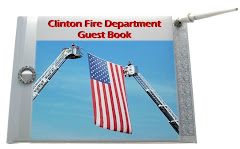In response to several questions about the siren alerting system in Clinton I will explain how the system works. There are 2 sirens in the Town of Clinton, 1 on the firehouse and the second 1 is located on West Main Street by the Shell Station. When the Clinton Fire Department is dispatched for a call a tone is sent out via a radio frequency. This tone makes our firefighters pagers beep and sets off the sirens in town. The sirens are on timers and should only work from 6:00 am until 10:00 pm.
The sirens serve several functions, alerting firefighters, alerting the public, and can be used during a state of emergency. Our firefighters carry pagers so some people have asked why do you need the siren to alert your members. Simple pagers do malfunction, members may work outside and not carry the pager, or they may be in a loud environment and can not hear the pager. Alerting the public that the CFD has been dispatched for a call is another reason for the siren. When the public hears the siren they should be alert for firefighters responding to the station as well as fire, police, and EMS apparatus responding to the scene of the call. Last but certainly not least in the event of a serious emergency town officials could use the sirens to alert the public.
Many questions have been asked in regards to the intermittent use of the siren on West Main Street. There were a few factors that came into play causing this siren to be out of service several times over the last several years. One cause was the Hunterdon County Communications Center switched all fire department dispatching to a different frequency and it took a while for the new equipment to be installed. A second factor was the Exit 15 construction when the power was disconnected and the siren was mounted on a new pole. Lastly there was a minor problem with the timer that was fixed recently. For those who ask how we made due when the siren was down the answer is simple, members missed several calls during this time.
The most important thing to remember when you hear the siren blow is that your neighbors are leaving their families, their jobs, school to help out the community. They don't get paid and there is always the chance when that siren blows that a firefighter may not see his or her family again. If anyone has further questions or concerns please do not hesitate to ask, we are always at the firehouse on Monday evenings so feel free to stop by.






